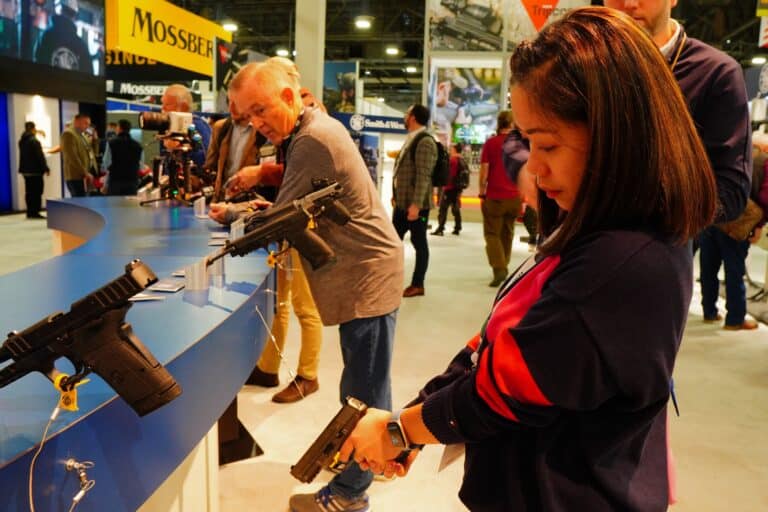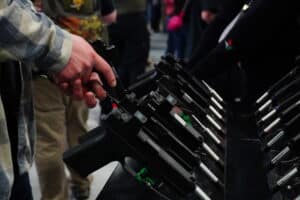The right to keep and bear arms does not include a right to acquire guns through commercial sales, a federal judge ruled Monday.
U.S. District Judge John L. Kane, a Jimmy Carter appointee, denied a request by gun-rights advocates to have Colorado’s three-day waiting period law for gun sales enjoined. He ruled the Second Amendment doesn’t cover sales.
“After examining the language of the Second Amendment using the Supreme Court’s analysis in Heller, I find, for the purposes of Plaintiffs’ Motion, that the plain text does not cover the waiting period required by the Act,” Judge Kane wrote in RMGO v. Polis. “This conclusion is bolstered by the fact that the Act is a regulation on the commercial sale of firearms and thus is presumptively permissible.”
The ruling deals a blow to gun-rights advocates who have now tried multiple times to have Colorado’s waiting period law blocked in court. It means Coloradans who wish to purchase firearms will continue to face delays in the purchasing process, whether or not they can pass an immediate background check. The standard used to uphold the law could have broader implications. The judge’s logic on the legal status of commercial gun sales may open the door for many additional restrictions on gun sales.
Rocky Mountain Gun Owners (RMGO), one of the plaintiffs challenging the law, called Monday’s decision a “bump in the road” but cautioned gun-rights supporters not to “lose faith.”
“We still have one more chance at a preliminary injunction via a Tenth Circuit panel, where we have already had success earlier this year,” Taylor Rhodes, the group’s executive director, said in a statement. “That’s why I have instructed RMGO’s attorneys to immediately appeal this decision and take it to a higher court.”
Colorado Governor Jared Polis’s (D.) office did not respond to a request for comment.
During his analysis of the Colorado law, Judge Kane referred back to the textual analysis of the Second Amendment done by the Supreme Court in its 2008 Heller decision. Paraphrasing the Court’s review of the text, he said that the right to keep and bear arms refers to a “guarantee [of] the individual right to possess and carry weapons in case of confrontation.” He said that the acquisition of a weapon was entirely separate from being able to possess and carry one.
“From this reading of the plain text, it is clear the relevant conduct impacted by the waiting period—the receipt of a paid-for firearm without delay—is not covered,” he wrote. “Still, Plaintiffs attempt to equate the words ‘obtain’ and ‘possess.’ But these terms are not equivalent. To ‘keep,’ under the definitions provided in Heller, meant to retain an object one already possessed. It did not mean to receive a newly paid-for item, and it certainly did not mean to receive that item without delay. Likewise, ‘hav[ing] weapons’ indicates the weapons are already in one’s possession, not that one is receiving them.”
Furthermore, Judge Kane said that even if he found that the plain text of the Second Amendment was implicated by commercial firearms sales, he thought that a waiting period for gun sales fit within the country’s historical tradition of gun laws. He noted that both sides of the case agreed that Founding Era laws lacked a historical twin to modern-day waiting period requirements. Still, he said that he was persuaded that colonial-era laws preventing intoxicated people from possessing weapons were sufficiently analogous to modern waiting periods because both were aimed at “preventing impulsive acts of firearm violence.”
“These measures are sufficient to show that our Nation had a historical tradition of regulating the carrying and use of firearms by intoxicated individuals,” Judge Kane wrote. “Plaintiffs do not seem to dispute this determination, but instead focus on whether those regulations are ‘relevantly similar’ to the Waiting-Period Act. For the purposes of this proceeding, I hold that they are.”






